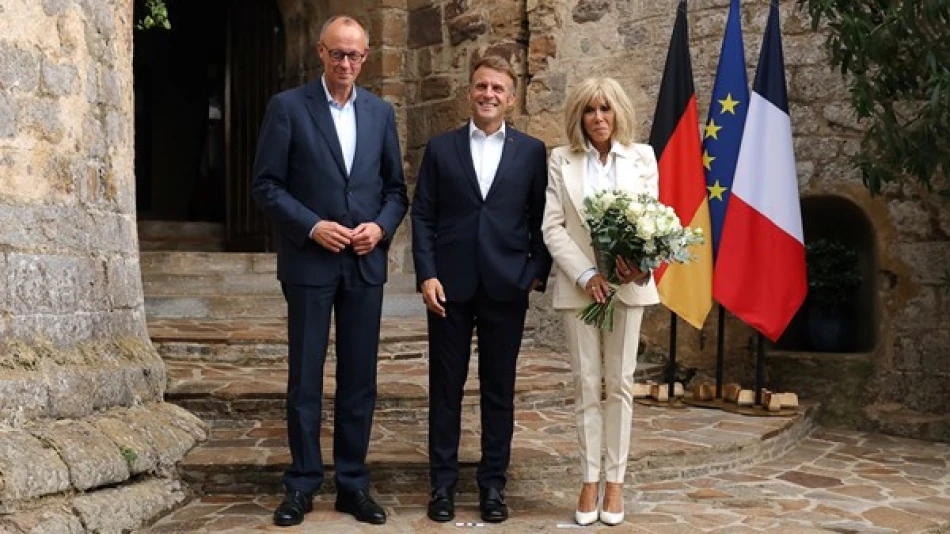
German Chancellor Weighs In on Potential Putin-Zelensky Meeting
Merkel's Successor Dismisses Putin-Zelensky Summit Despite Trump's Alaska Diplomacy
German Chancellor Friedrich Merz has categorically ruled out any immediate meeting between Russian President Vladimir Putin and Ukrainian President Volodymyr Zelensky, despite recent diplomatic efforts by Donald Trump following his August meeting with Putin in Alaska. Merz's stark assessment underscores the deep divisions that continue to define the Ukraine conflict nearly three years after Russia's invasion.
Franco-German Skepticism on Peace Talks
Speaking alongside French President Emmanuel Macron at a joint Franco-German ministerial meeting on Thursday, Merz made clear that European leaders remain unconvinced by Trump's diplomatic overtures. "There will certainly be no meeting between President Zelensky and President Putin, contrary to what was agreed between President Trump and President Putin," the German chancellor stated.
This public dismissal signals a potential rift between European and American approaches to resolving the Ukraine crisis, with Berlin and Paris appearing more cautious about the prospects for meaningful dialogue between the warring leaders.
Trump's Alaska Gambit: A New Chapter in Crisis Diplomacy
The backdrop to Merz's comments lies in Trump's recent diplomatic initiative. On August 15, the former and current U.S. president met with Putin in Alaska, marking a significant moment in American-Russian relations since the conflict began in February 2022. Following that encounter, Trump expressed optimism about facilitating a Putin-Zelensky summit.
Trump's willingness to engage directly with Putin represents a marked departure from the Biden administration's approach, which largely isolated Russia through sanctions and military aid to Ukraine. The Alaska meeting suggests Trump views personal diplomacy as key to breaking the current stalemate.
European Realism vs. American Optimism
The divergence between Merz's pessimism and Trump's post-Alaska confidence reflects broader strategic differences. European leaders have consistently maintained that any sustainable peace must address Ukraine's territorial integrity and security guarantees – conditions that remain far from Putin's current negotiating position.
Germany's stance carries particular weight given its role as Europe's largest economy and its complex energy relationship with Russia prior to the conflict. Merz, who leads the Christian Democratic Union and represents a more hawkish approach toward Moscow than his predecessor Angela Merkel, appears unwilling to endorse premature diplomatic initiatives.
Market and Geopolitical Implications
The continued diplomatic impasse has significant implications for global markets, particularly energy and defense sectors. European energy prices remain elevated due to the severed Russian gas relationship, while defense spending across NATO countries has surged. Any genuine breakthrough in Putin-Zelensky dialogue could trigger major market movements, but Merz's assessment suggests such developments remain distant.
For investors, the German chancellor's comments reinforce the likelihood of prolonged conflict-related economic pressures, from sustained high defense budgets to continued energy market volatility. The Franco-German alignment also suggests European Union policy toward Russia will remain restrictive regardless of American diplomatic initiatives.
Most Viewed News

 Layla Al Mansoori
Layla Al Mansoori






